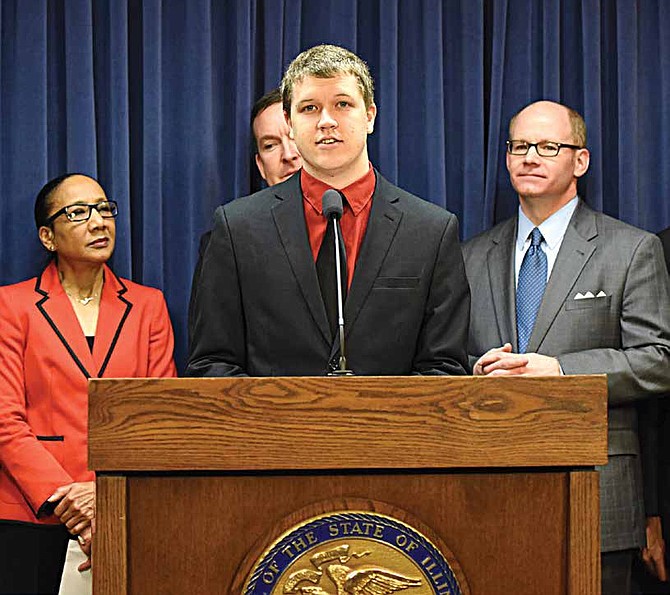Common Cause Illinois Works to Make Voter Registration Automatic
Common Cause Illinois Works to Make Voter Registration Automatic
By Monique Smith
All across the country Republican state representatives and governors are waging war on African American and Latino voters. According to a unanimous panel of the U.S. 4th Circuit Court of Appeals summary North Carolina voter I.D. laws targeted black voters with “almost surgical precision.” The state waited 17 days after that ruling then asked the Supreme Court to reinstate its voter-ID law, cuts to early voting, and ban on preregistration for 16- and 17-year-olds.
Republicans in North Carolina are pulling out all the stops to suppress the state’s reliably Democratic black vote. After the Fourth Circuit court reinstated a week of early voting, GOP controlled county elections boards are now trying to cut early-voting hours across the state.
By virtue of holding the governor’s office in North Carolina, Republicans control a majority of votes on all county election boards and recently, voted to cut 238 hours of early voting in Charlotte’s Mecklenburg County, the largest in the state.
African Americans utilize early voting more than any other group because many can’t afford to take off of work to vote. In Illinois, a bill was brought before Governor Bruce Rauner that would make voter registration automatic here in the state, but it was vetoed after sitting on the governor’s desk for more than 50 days.
This bill received bi-partisan support, 86- 30 in the House and 50-7 in the Senate. One group that supported the measure, Common Cause Illinois, accused Rauner of wanting to delay the proposal beyond the fall 2018 election when the governor’s office is on the ballot. The Common Cause Illinois Board is made up of community, business and religious leaders from across the state, according to its website.
“We were all a little surprised by the Governor’s decision to veto this bill after it received such large bi-partisan support,” said Trevor Gervais, Lead Organizer for Common Cause Illinois.
“The Governor decided to get involved only a week before the deadline, he has 60 days to sign off on a bill or send it back for revisions and he waited for the 55th day.”
Governor Rauner recently released a statement to the press citing his support for voter participation, but expressed concerns over voter fraud.
“I strongly support efforts to encourage greater voter participation in our democracy and share the goals of this legislation,” Rauner said in a statement. “Unfortunately, as currently drafted, the bill would inadvertently open the door to voter fraud and run afoul of federal election law. We will continue working with the legislature and key stakeholders on language that meets our shared goals while complying with federal law and preventing voter fraud,” he said.
However, there is very little evidence to suggests voter fraud is a problem. According to the Board of Elections there have been less than 1% of reported cases of voter fraud in Illinois.
Gervais says the his group and others are working to have Rauner’s veto decision overturned in November. “It’s simply political,” said Gevais referring to Rauner’s delayed response and decision to veto the measure.
Latest Stories
- ISBE and Lurie Children’s Launch Free, Data-Informed Resilience-Supportive Schools Illinois Initiative to Strengthen Student Mental Health and Resilience in All Schools
- Alzheimer’s Association Illinois Chapter Strengthens Commitment to Health Equity Through Diversity and Inclusion Initiatives
- Actress Draws From Life Experiences For Music And Acting Preparation
- Former Journalist’s Fragrance Company Promotes Self Care
- Doctors Provide Information About Resources For Women Experiencing Menopause
Latest Podcast
STARR Community Services International, Inc.

